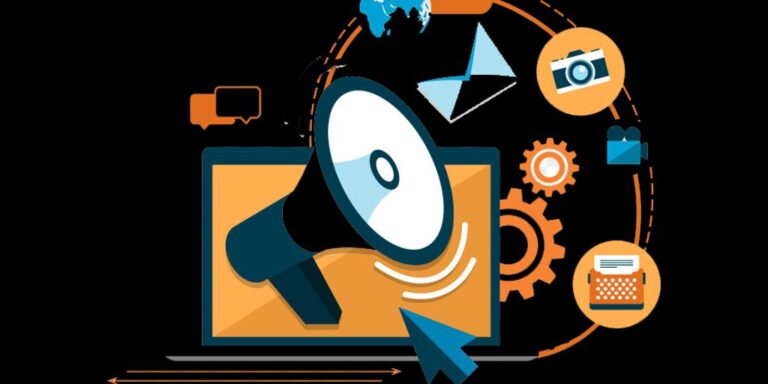The article explores the multifaceted ethical, legal, and societal implications of using technology to create naked photos. It delves into the technologies behind such image generation, including AI and deepfake, and discusses the wide-reaching consequences of these practices on privacy, consent, and moral standards.
Key Takeaways
- Understanding the technological foundations and limitations of AI and deepfake in generating nude photos is crucial.
- Legal frameworks lag behind technological advancements, leading to privacy violations and consent issues.
- Ethical dilemmas abound, focusing on the autonomy of individuals and the responsibilities of developers.
- The psychological and societal impacts of nonconsensual nude images can be profound and long-lasting.
- Technological solutions and global cooperation are needed to address the ethical challenges posed by AI-generated nude images.
Understanding the Technology Behind Making a Naked Photo

How AI Generates Nude Images
AI-driven technologies like Generative Adversarial Networks (GAN) are pivotal in creating nude images from clothed photos. These networks are trained on vast datasets of nude photographs to ‘learn’ and generate convincing images of non-existent individuals. The realism achieved by these AI models is profound, making it difficult to distinguish between real and AI-generated images.
The Role of Deepfake Technology
Deepfake technology manipulates and synthesizes images by superimposing existing images and videos onto source images using machine learning techniques. This technology is not only used for creating realistic nude photos but also for altering videos to make it appear as though someone is saying or doing something they are not. This raises significant ethical concerns due to potential misuse for creating non-consensual explicit images.
Technological Mechanisms and Their Limitations
The process of creating a nude photo using AI involves several steps:
- Analyzing the photo along with estimated pose and facial features.
- Creating a starting image with a text-to-image AI based on identified details like gender and body type.
- Refining the image to incorporate unique facial features and pose, resulting in the final nude portrait. Despite the advanced technology, there are limitations in accuracy, especially when the AI fails to correctly interpret the nuances of human anatomy.
Legal Implications of Generating Nude Photos

Privacy Laws and Consent
Privacy laws are crucial when discussing the generation of nude photos using technology. The creation of nude images without explicit consent can lead to severe legal consequences. This is particularly relevant with platforms like Nude AI, where the ease of generating such images raises significant concerns about non-consensual content.
Highlight: Nudifying Online raises ethical and legal concerns regarding consent, misuse, and privacy.
Copyright Issues with AI-Generated Images
Copyright laws are challenged by the emergence of AI technologies that can generate images. The legality of using someone’s likeness without their permission is still a gray area, especially when these images are distributed or monetized. This necessitates a clear legal framework to address these issues effectively.
Regulatory Gaps in Digital Content Creation
The digital landscape is evolving, and so are the regulations governing it. However, there are still significant gaps, particularly concerning the use of AI in creating content that could be harmful or invasive. Legislators are urged to implement more stringent measures to prevent misuse and protect individuals’ rights.
Ethical Concerns in Using Technology to Make a Naked Photo

The Debate Over Consent and Autonomy
The core of ethical debates surrounding AI-generated nude photos centers on consent and autonomy. The technology’s ability to create explicit images without explicit permission from the subjects poses significant ethical dilemmas. This lack of consent not only infringes on personal autonomy but also raises concerns about privacy and the potential for misuse.
Moral Responsibilities of Developers
Developers of technologies that enable the creation of nude photos carry a heavy moral burden. They must navigate the fine line between innovation and the potential harm their technologies can cause. It is crucial for developers to implement robust ethical guidelines and ensure that their tools are used responsibly to prevent harm.
Impact on Social Norms and Values
The use of technology to generate nude photos can significantly alter social norms and values. It challenges traditional notions of privacy and can desensitize the public to the seriousness of consent violations. The widespread availability of such technology could lead to a more permissive attitude towards the non-consensual distribution of intimate images, further complicating the social fabric.
Psychological Impact on Victims

Emotional Distress and Mental Health
The creation of unauthorized nude photos using technology can lead to severe emotional distress and mental health issues for the victims. Victims often experience anxiety, depression, and a sense of violation that can profoundly affect their daily lives and sense of safety.
Stigmatization and Social Repercussions
Victims may face significant social stigma and isolation as a result of the exposure or distribution of their images. This can lead to a decrease in social interactions and professional opportunities, compounding the emotional distress they already face.
Long-term Psychological Effects
The long-term psychological impact on victims can be devastating. Many suffer from prolonged mental health issues, including PTSD, which can persist for years after the incident. The lack of control over one’s digital presence and the fear of re-victimization can hinder recovery and affect personal and professional relationships.
Societal Reactions and Public Opinion

Media Coverage and Public Discourse
The way media portrays the generation of nude photos using AI technology significantly shapes public opinion. Bold discussions and debates in media outlets highlight the ethical dilemmas and societal implications of this technology. The coverage often oscillates between technological marvel and ethical controversy, influencing how society perceives its use and regulation.
Influence of Cultural and Social Contexts
Cultural and social contexts deeply influence the acceptance and reaction to AI-generated nude photos. In some cultures, such images might be seen as an artistic expression, while in others, they are viewed as a severe breach of moral and social norms. This dichotomy plays a crucial role in shaping the regulatory and social response to the technology.
Shifts in Public Perception Over Time
Public perception regarding AI-generated nude images has evolved over time. Initially, there might have been curiosity and intrigue, but as the implications and potential abuses have become clearer, skepticism and opposition have grown. This shift is crucial for understanding the future trajectory of technology acceptance and ethical considerations in society.
Potential Misuse and Abuse of Technology

Harassment and Blackmail Risks
The potential for harassment and blackmail using AI-generated nude images is a significant concern. The misuse of such technology can lead to severe invasions of privacy, where individuals’ faces are superimposed onto nude bodies without their consent. This misuse not only violates personal privacy but also poses serious emotional and psychological risks to the victims.
Use in Cyberbullying and Revenge Porn
AI technology has enabled a new form of cyberbullying and revenge porn, where perpetrators use apps to create fake nude photos of their peers or ex-partners. This form of abuse is particularly alarming when it involves minors, highlighting the urgent need for stringent controls and ethical guidelines in technology use.
Safeguards Against Misuse
To combat the misuse of AI in generating nude photos, several safeguards are necessary. These include:
- Implementing strict age verification systems to prevent minors from accessing such apps.
- Developing robust AI ethics guidelines to govern the creation and distribution of synthetic media.
- Enhancing legal frameworks to ensure swift and effective legal recourse for victims of such abuses.
Technological Solutions to Ethical Problems

Innovations in AI Ethics
In the rapidly evolving field of AI, innovations in ethics are crucial to address the moral dilemmas posed by technology. Developers are increasingly embedding ethical guidelines directly into AI systems to ensure they operate within predefined moral boundaries. This proactive approach helps in mitigating risks associated with AI-generated content, including nude photos.
Implementing Effective Content Moderation
Effective content moderation is essential to prevent the misuse of AI in creating inappropriate content. By utilizing advanced algorithms and human oversight, companies can detect and remove unethical content before it reaches the public. This dual approach ensures a balance between innovation and ethical responsibility.
Role of AI in Enhancing Privacy
AI can play a significant role in enhancing privacy by developing tools that protect user data and anonymity. Innovations such as encrypted data processing and anonymization techniques are becoming more sophisticated, offering users greater security and peace of mind in their digital interactions.
AI development happens at breakneck speed, often overlooking ethical considerations which should be integral, not an afterthought.
Global Perspectives on Nude Photo Generation

Cultural Differences in Acceptance
Different cultures exhibit varying levels of acceptance towards the generation of nude photos using AI. In some regions, the practice might be seen as a form of artistic expression, while in others, it is considered deeply offensive and unethical. This disparity often reflects broader societal norms and values.
International Legal Frameworks
Countries around the world have diverse legal approaches to AI-generated nude images. Some have strict laws prohibiting such content, while others may lack specific regulations, leading to a fragmented global legal landscape. Here’s a brief overview:
- United States: Strict copyright laws, but varying state laws on digital consent
- European Union: General Data Protection Regulation (GDPR) impacts AI usage
- Japan: Strong privacy laws, but less specific on AI-generated content
Global Ethical Standards and Compliance
The international community has yet to reach a consensus on ethical standards for AI-generated nudes. However, initiatives are underway to create a more unified approach to address the ethical dilemmas posed by AI in the digital age. The challenge remains in balancing innovation with ethical responsibility, ensuring that all stakeholders, including developers and users, adhere to agreed-upon ethical guidelines.
Future of AI and Ethical Image Generation

Advancements in Ethical AI
The trajectory of AI in image generation is steering towards more ethical practices, with a focus on developing algorithms that prioritize consent and privacy. Bold strides are being made to ensure that AI systems are transparent and accountable, addressing the ethical concerns that have surfaced with their use in creating sensitive content like nude photos.
Predicting Future Trends
AI’s capabilities in image generation are expected to grow, but so are the ethical challenges. The integration of ethical guidelines into AI development is crucial to manage the potential misuse of this technology. Future trends may include more robust legal frameworks and advanced AI systems that can better discern and respect user consent.
Balancing Innovation with Ethics
The balance between innovation and ethical responsibility in AI is delicate. Developers and stakeholders must continuously engage in dialogue to ensure that advancements in AI do not compromise ethical standards. This ongoing conversation is essential for fostering a technology landscape that respects individual rights and societal norms.
Role of Education and Awareness

Educating Users on Ethical Use
Education is crucial in shaping how individuals interact with technology that can generate nude photos. By integrating ethics into the curriculum, users can be made aware of the consequences of their actions in digital spaces. This education should not only focus on the ‘how-to’ but also on the ‘should-you’ aspects of technology use.
Awareness Campaigns and Their Impact
Awareness campaigns play a significant role in informing the public about the ethical use of technology. These campaigns can utilize various media platforms to spread messages that discourage the misuse of AI in creating inappropriate content. Effective campaigns often include testimonials and real-life consequences of misuse.
Building a Responsible Digital Community
Creating a responsible digital community involves collaborative efforts from all stakeholders, including educators, tech companies, and users themselves. This community should uphold standards that respect individual privacy and promote ethical digital behavior. Engaging in open discussions and setting community guidelines are steps towards achieving this goal.
Impact on the Pornography Industry

Changes in Production and Consumption
The porn industry has always been at the forefront of adopting new technologies, from VHS tapes to virtual reality. The integration of AI into this sector is transforming both production and consumption patterns. AI-generated content is becoming increasingly prevalent, offering new forms of entertainment but also raising significant ethical questions.
Ethical Alternatives to Traditional Porn
AI offers the potential for creating ethical alternatives to traditional pornographic content. These alternatives can reduce the exploitation associated with traditional porn production by eliminating the need for human actors in potentially degrading scenarios.
Industry Response to AI Innovations
The industry’s response to AI innovations has been mixed. While some see it as a way to innovate and attract new audiences, others are concerned about the ethical implications and the potential for misuse. The debate continues as stakeholders evaluate the benefits and risks associated with AI in porn.
Voices from the Field: Experts and Victims Speak

Expert Opinions on Ethical Dilemmas
Experts in technology and ethics emphasize the crucial need for ethical use of deepfake nude technology. They argue that balancing creativity with ethics is essential to foster responsible practices in the digital realm. Key concerns include consent, privacy, and the potential for harm.
Testimonies from Individuals Affected
Victims of unauthorized nude image generation share their experiences, highlighting the emotional and psychological impact. The lack of consent and control over personal images leads to significant distress, underscoring the need for stringent regulations and ethical standards in technology use.
Balancing Technological Progress and Human Rights
The dialogue between advancing technology and protecting human rights is ongoing. Stakeholders are calling for a balanced approach that ensures technological innovations do not override basic human dignities. The focus is on creating safeguards that prevent misuse while promoting positive advancements.
Conclusion
The ethical implications of using technology to generate nude images are profound and multifaceted. While the technology itself does not exploit real individuals, the lack of consent and the potential for misuse raise significant concerns. These AI-generated images can lead to privacy violations, harassment, and contribute to a culture of nonconsensual image sharing. As we navigate the digital age, it is crucial to implement stringent regulations and ethical guidelines to prevent abuse and ensure that technological advancements do not come at the cost of human dignity and privacy.
Frequently Asked Questions
What technology is used to generate nude photos?
Technologies such as AI nudification apps, deepfake technology, and AI programs like Lensa are used to generate nude images by creating realistic-looking body parts from clothed photos.
Are AI-generated nude images considered consensual?
No, AI-generated nude images are typically created without the consent of the individuals depicted, raising serious ethical and legal concerns.
What are the potential dangers of AI-generated nude photos?
Potential dangers include privacy invasion, harassment, blackmail, and misuse involving minors, which can lead to severe emotional and psychological distress.
Can AI-generated nudes evade content moderation?
Yes, AI art generators can potentially evade traditional content moderation systems, making it difficult to control or regulate the spread of such images.
Is generating nude images with AI legal?
The legality of generating and distributing AI-generated nude images varies by jurisdiction, but it often intersects with privacy laws and can be illegal if it involves nonconsensual imagery.
How can misuse of AI in generating nude photos be prevented?
Legislators and developers can implement stricter regulations and ethical guidelines, including guardrails that prevent the creation of nonconsensual images and enhance content moderation.
What is the psychological impact on victims of AI-generated nude images?
Victims can experience significant emotional distress, mental health issues, social stigmatization, and long-term psychological effects due to the unauthorized use and distribution of their likenesses.
How does public opinion shape the use of technology for generating nude photos?
Public opinion is generally critical of the use of technology to generate nude photos without consent, influencing legal frameworks and ethical standards in digital content creation.








